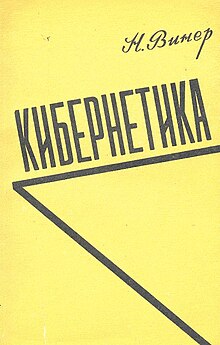
Cybernetics in the Soviet Union had its own particular characteristics, as the study of cybernetics came into contact with the dominant scientific ideologies of the Soviet Union and the nation's economic and political reforms: from the unmitigated anti-Americanist criticism of cybernetics in the early 1950s; its legitimization after Stalin's death and up to 1961; its total saturation of Soviet academia in the 1960s; and its eventual decline through the 1970s and 1980s.
Initially, from 1950 to 1954, the reception of cybernetics by the Soviet Union establishment was exclusively negative. The Soviet Department for Agitation and Propaganda had called for anti-Americanism to be intensified in Soviet media, and in an attempt to fill the Department's quotas, Soviet journalists latched on to cybernetics as an American "reactionary pseudoscience" to denounce and mock. This attack was interpreted as a signal of an official attitude to cybernetics, so, under Joseph Stalin's premiership, cybernetics was inflated into "a full embodiment of imperialist ideology" by Soviet writers. Upon Stalin's death, the wide-reaching reforms of Nikita Khrushchev's premiership allowed cybernetics to legitimize itself as "a serious, important science", and in 1955, articles on cybernetics were published in the state philosophical organ, Voprosy Filosofii, after a group of Soviet scientists realized the potential of this new science.
Under the formerly suppressive scientific culture of the Soviet Union, cybernetics began to serve as an umbrella term for previously maligned areas of Soviet science, such as structural linguistics and genetics. Under the leadership of academician Aksel Berg, the Council of Cybernetics was formed, an umbrella organization dedicated to providing funding for these new lights of Soviet science. By the 1960s, this fast legitimization put cybernetics in fashion, as "cybernetics" became a buzzword among career-minded scientists. Additionally, Berg's administration left many of the original cyberneticians of the organization disgruntled; complaints were made that he seemed more focused on administration than scientific research, citing Berg's grand plans to expand the council to subsume "practically all of Soviet science". By the 1980s, cybernetics had lost relevance in Soviet scientific culture, as its terminology and political function were succeeded by those of informatics in the Soviet Union and, eventually, post-Soviet states.
- ^ Gerovitch 2002, pp. 196–197.
